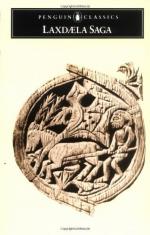the age of child but a short way behind; and be sure
to come and see us when you come back again.”
Then the king and Gunnhild bade Olaf farewell.
Then Olaf and his men got on board, and sailed out
to sea. They came in for unfavourable weather
through the summer, had fogs plentiful, and little
wind, and what there was was unfavourable; and wide
about the main they drifted, and on most on board
fell “sea-bewilderment.” But at last
the fog lifted over-head; and the wind rose, and they
put up sail. Then they began to discuss in which
direction Ireland was to be sought; and they did not
agree on that. Orn said one thing, and most of
the men went against him, and said that Orn was all
bewildered: they should rule who were the greater
in number. Then Olaf was asked to decide.
He said, “I think we should follow the counsel
of the wisest; for the counsels of foolish men I think
will be of all the worse service for us in the greater
number they gather together.” And now they
deemed the matter settled, since Olaf spake in this
manner; and Orn took the steering from that time.
[Sidenote: They get to Ireland] They sailed for
days and nights, but always with very little wind.
One night the watchmen leapt up, and bade every one
wake at once, and said they saw land so near that
they had almost struck on it. The sail was up,
but there was but little wind. Every one got
up, and Orn bade them clear away from the land, if
they could. Olaf said, “That is not the
way out of our plight, for I see reefs all about astern;
so let down the sail at once, and we will take our
counsel when there is daylight, and we know what land
this is.” Then they cast anchors, and they
caught bottom at once. There was much talk during
the night as to where they could be come to; and when
daylight was up they recognised that it was Ireland.
Orn said, “I don’t think we have come to
a good place, for this is far away from the harbours
or market-towns, whose strangers enjoy peace; and
we are now left high and dry, like sticklebacks, and
near enough, I think, I come to the laws of the Irish
in saying that they will lay claim to the goods we
have on board as their lawful prize, for as flotsam
they put down ships even when sea has ebbed out shorter
from the stern (than here).” Olaf said
no harm would happen, “But I have seen that
to-day there is a gathering of men up inland; so the
Irish think, no doubt, the arrival of this ship a
great thing. During the ebb-tide to-day I noticed
that there was a dip, and that out of the dip the
sea fell without emptying it out; and if our ship has
not been damaged, we can put out our boat and tow
the ship into it.” There was a bottom of
loam where they had been riding at anchor, so that
not a plank of the ship was damaged. [Sidenote:
The Irish] So Olaf and his men tow their boat to the
dip, cast anchor there. Now, as day drew on,
crowds drifted down to the shore. At last two
men rowed a boat out to the ship. They asked
what men they were who had charge of that ship, and




